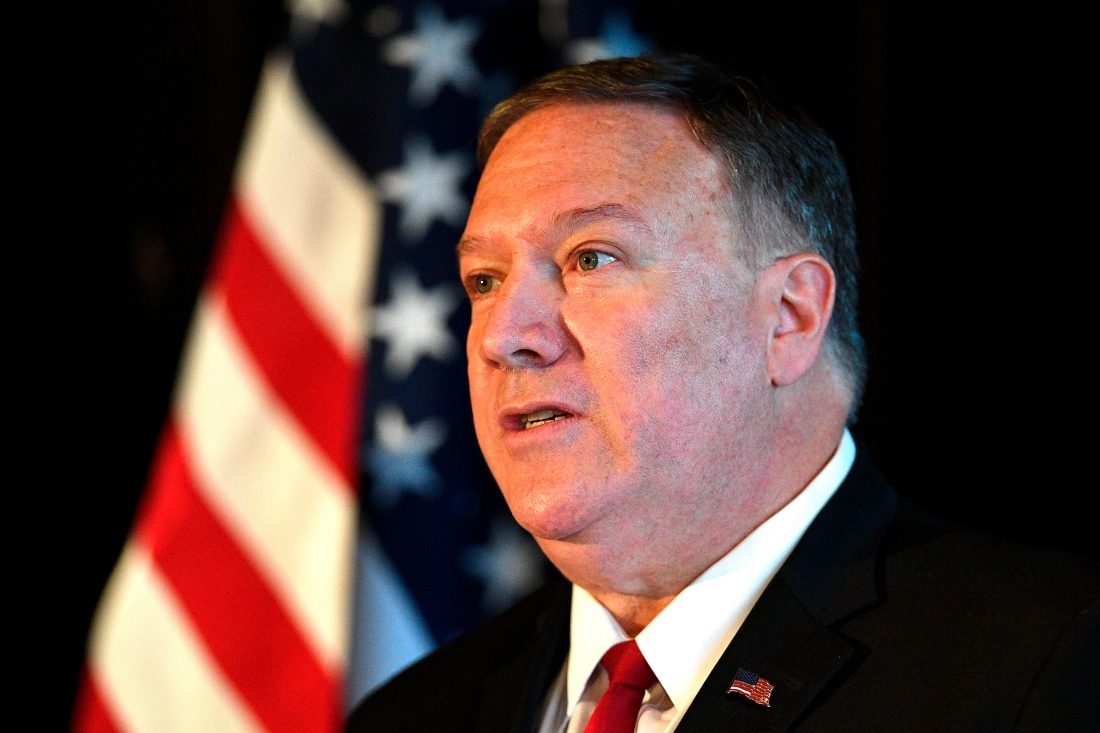
Mike Pompeo meets with Saudi crown prince to discuss oil facilities attack
5:42 p.m. ET, September 18, 2019
Saudi Arabia instructed the US to avoid conflict with Iran during a meeting in August
From CNN’s Pamela Brown, Barbara Starr, and Kylie Atwood
When Prince Khalid bin Salman, the Saudi deputy defense minister and former Saudi ambassador to the US, met with senior administration officials at the State Department, the Pentagon and the CIA in late August, he gave a clear message: don’t start a military conflict with Iran.
The Saudis want the US to keep up the economic squeeze on Iran and are wary of any action that might start a conflict it could get dragged into, according to two sources familiar with the discussions.
That message has taken on new significance in light of Secretary of State Mike Pompeo’s visit to Saudi Arabia this week to talk to the Saudis about a response to the attack on its oil refineries. President Trump wants the Saudis to take the lead in any response, since it was an attack on their soil.
There is widespread pressure coming from countries in the Middle East, who are in discussions with the Trump administration to mobilize an appropriate response to the oil field attack. But the US is getting different messages from those countries as to what should happen next and if military intervention is necessary.
“If there is not a response, why is the US in the Middle East?” said one diplomat from the region, adding that no one will take the US seriously if it does not respond to the attack beyond sanctions.
Pompeo called the attack on the Saudi oil fields last weekend an “act of war” but did not promise a military response, or detail any new intelligence that shows the attack was launched from inside Iran, when he landed in Saudi Arabia Wednesday.
1:08 p.m. ET, September 18, 2019
Pompeo says Saudi oil attack was an “act of war”
From CNN’s Jennifer Hansler

SAEED KHAN/AFP/Getty Images
Secretary of State Mike Pompeo called the strike on Saudi oil facilities “an Iranian attack” that was an “act of war.”
Pompeo stopped short of providing any details definitively showing the Iranians launched the attack from Iran.
“We were blessed that there were no Americans killed in this attack but any time you have an act of war of this nature, there’s always risk that that could happen,” he said. “This is an attack of a scale we’ve just not seen before,” he added later.
Pompeo, speaking to reporters off-camera before landing in Jeddah, said: “This was an Iranian attack. It’s not the case that you can subcontract out the devastation of 5% of the world’s global energy supply and think that you can absolve yourself from responsibility. Were it the case that the Houthis’ fraudulent claim was accurate, were that true — it’s not, but were that true, it doesn’t change the fingerprints of the Ayatollah as having put at risk the global energy supply.”
Pompeo said the intelligence community has high confidence that the Houthis did not possess weapons systems like the ones used in the attacks. He said that they believe the attacks originated in Iran, not in Iraq.
“As for how we know, the equipment used is unknown to be in the Houthi arsenal,” he said. “These line attack cruise missiles we have never seen there and we think we’ve seen most everything. So the intelligence community has high confidence that these were not weapons that would have been in the possession of the Houthis. That’s probably the most important piece of information.”
“We also know that these are systems that the Iranians have not deployed anyplace else, that they have not deployed outside of their country to the best of our knowledge. We’ve not seen them deploy these types of UAV systems with the kinds of ranges and capabilities nor have we seen them place these missiles where they could have done it. We’ve seen no evidence that it came from Iraq. It could have well have traveled over Kuwait — we’ve not seen that,” Pompeo said.
He also called the Houthis liars and suggested they do not operate independently from Tehran.
“Whenever you report about them, and you say, ‘The Houthis said,’ you should say ‘The well known frequently lying Houthis have said the following.’ This is important because you ought not report them as if these truth-tellers, as if these are people who aren’t completely under the boot of the Iranians and who would not, at the direction of the Iranians, lay claim to attacks that they did not engage in. Which clearly was the case here,” Pompeo said. “So there you go, whenever you say Houthis, you should begin with, ‘the well-known, frequently known to lie Houthis,’ and then you can write whatever it is they say. And that’d be good reporting (laughter) and I know you care deeply about that good reporting.”
No comments:
Post a Comment